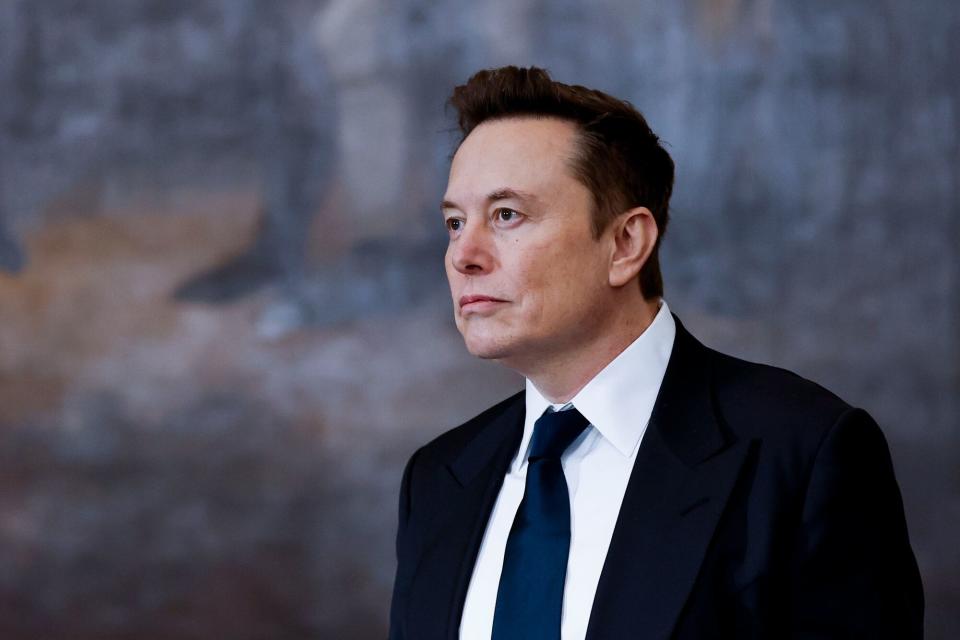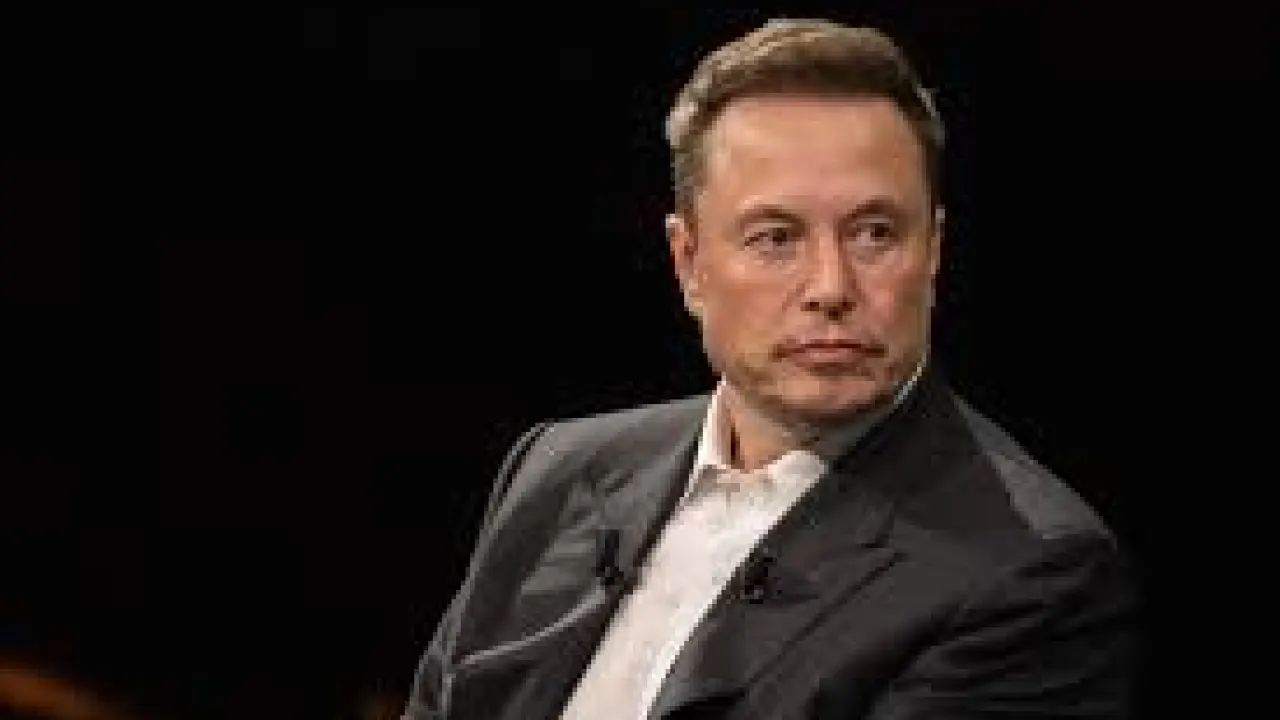The Musk Foundation has just pledged $55 million for pediatric disease research

The Musk Foundation Pledges $55 Million for Pediatric Disease Research: A Lifeline for Future Generations
1. A Groundbreaking Commitment: $55 Million for Pediatric Disease Research
In a powerful demonstration of his commitment to improving global healthcare, Elon Musk has announced that the Musk Foundation will pledge $55 million to fund pediatric disease research. This landmark donation will be directed toward organizations and research initiatives focused on finding treatments and cures for diseases that disproportionately affect children. With this pledge, Musk is taking a significant step toward addressing the urgent need for more research and funding in the pediatric healthcare sector, an area that has often been underfunded and overlooked.
The donation comes at a critical time, as the world faces unprecedented challenges in healthcare. While much of the spotlight has been on adult diseases and conditions, childhood diseases, including rare genetic disorders, pediatric cancers, and chronic conditions such as cystic fibrosis, often receive a fraction of the research funding. Musk’s decision to invest in pediatric disease research not only shines a light on this disparity but also seeks to catalyze change by investing in groundbreaking scientific research that could transform the future of pediatric care.
Pediatric diseases are particularly challenging because they often require specialized treatments that take into account the unique physiological needs of children. Moreover, many of these diseases are rare and poorly understood, making them difficult to treat. The $55 million pledge from the Musk Foundation is expected to accelerate research efforts, helping scientists develop innovative treatments that can save lives and improve the quality of life for children around the world.
2. The Pediatric Disease Crisis: Why More Research Funding Is Essential
Despite advances in adult healthcare, the world still faces a critical shortage of research funding for pediatric diseases. According to the American Cancer Society, only about 4% of the National Cancer Institute’s budget is allocated to childhood cancer research, despite the fact that cancer is the leading cause of death by disease among children. Similarly, conditions such as rare genetic disorders, pediatric autoimmune diseases, and other chronic illnesses affecting children remain significantly underfunded.
The lack of funding for pediatric disease research is compounded by the fact that many childhood diseases are rare and complex, requiring highly specialized knowledge and treatment options. For example, diseases like Spinal Muscular Atrophy (SMA) and Duchenne Muscular Dystrophy (DMD) are genetic in nature and currently have no permanent cure. While some advances have been made in treatments for specific pediatric diseases, much work remains to be done to find effective therapies that are both affordable and accessible to all families.
Additionally, children are not just small adults; they experience diseases differently. Their bodies respond to medications and treatments in unique ways, meaning that pediatric research must be customized to account for these differences. Too often, adult-focused research is used as a basis for treatments in children, but this approach does not always account for the nuanced needs of younger patients. The Musk Foundation’s $55 million donation seeks to address this gap by directly funding research that focuses on the specific needs of children and the diseases that affect them.
As the global population continues to age, there is growing recognition of the need to balance healthcare research priorities between adults and children. Musk’s pledge highlights this need and provides an opportunity for researchers to develop treatments that can have a lasting impact on future generations. By focusing on pediatric diseases, Musk is contributing to a legacy of healthcare research that is both urgent and long overdue.
3. The Focus Areas of the $55 Million: Where Will the Money Go?
The $55 million pledged by the Musk Foundation will be used to fund a wide variety of research initiatives in pediatric disease, with a particular focus on rare and genetically-based conditions, pediatric cancers, and chronic diseases. The funds will be allocated to research programs that are developing innovative treatments and technologies aimed at improving the lives of children suffering from these diseases.
Pediatric Cancer Research: Pediatric cancers, such as leukemia, brain tumors, and neuroblastoma, are some of the most difficult diseases to treat, with many treatments offering limited success and causing severe side effects. The Musk Foundation’s donation will support research into more effective, targeted therapies for pediatric cancers, with a particular emphasis on immunotherapy, precision medicine, and less toxic treatments that can improve long-term survival rates without compromising quality of life.
Genetic Disorders: Many childhood diseases, such as cystic fibrosis, SMA, and DMD, are genetic in nature, making them particularly difficult to treat. Genetic disorders often require specialized treatments that target the underlying genetic mutations causing the disease. The Musk Foundation’s investment in genetic research will focus on gene therapy and other cutting-edge technologies aimed at curing or alleviating the symptoms of these devastating diseases. The foundation is also funding research into gene editing techniques, such as CRISPR, which have the potential to revolutionize the way genetic diseases are treated.
Chronic Pediatric Diseases: Conditions like asthma, diabetes, and autoimmune diseases affect millions of children worldwide, and many of these conditions are poorly understood. The Musk Foundation’s donation will fund research aimed at developing new treatments for these chronic conditions, as well as investigating the environmental and genetic factors that contribute to their development. By improving our understanding of chronic pediatric diseases, the foundation aims to help alleviate the burden on children and their families and improve quality of life.
Rare Diseases: Rare diseases are defined as conditions that affect fewer than 200,000 people, but collectively, these diseases impact millions of individuals around the world. Many rare diseases have no known cure, and research into these conditions has been historically underfunded. Musk’s commitment to funding rare disease research will allow scientists to explore new approaches to treating conditions that might otherwise be overlooked due to their low prevalence.
4. The Musk Foundation’s Vision: A Long-Term Investment in Pediatric Health
Elon Musk’s $55 million pledge is part of his broader philanthropic philosophy, which focuses on addressing critical global challenges through technological innovation, research, and sustainable solutions. Musk has often expressed a deep concern about the future of humanity, particularly in the areas of space exploration, climate change, and healthcare. His investment in pediatric disease research reflects his belief in the transformative power of science and technology to improve lives and solve problems that have long been seen as insurmountable.
In addition to the direct funding for research, the Musk Foundation’s involvement in pediatric health also extends to educational outreach and capacity building. By supporting research institutions, universities, and medical organizations, the foundation is helping to develop the next generation of scientists and medical professionals who will continue to drive progress in pediatric healthcare. This investment in education and research infrastructure will ensure that pediatric disease research remains a priority and that the breakthroughs achieved today can be translated into real-world solutions for tomorrow.
Musk has also expressed his desire to collaborate with other philanthropists, researchers, and organizations to maximize the impact of this donation. As the global community increasingly comes together to combat pressing challenges like climate change, disease, and inequality, Musk’s $55 million pledge serves as a reminder that collaboration and collective action are key to creating lasting change.
The impact of this donation will likely be felt for decades to come, as the research it funds has the potential to revolutionize pediatric healthcare. Musk’s commitment to improving the lives of children and families around the world is an important step in building a healthier, more equitable future.







